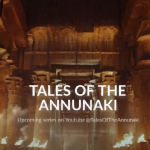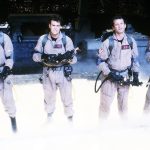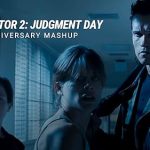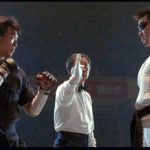Black Adam 2 (2025): When Gods Fall Silent, Wrath Speaks
Black Adam 2 (2025): When Gods Fall Silent, Wrath Speaks
When Black Adam first stormed into theaters in 2022, it shattered the long-held notion that DC’s cinematic universe lacked antiheroes capable of capturing the cultural imagination. Rooted in myth yet brimming with modern fury, Dwayne Johnson’s portrayal of Teth-Adam stood as a towering figure—neither savior nor villain, but something far more dangerous: a man burdened by power, grief, and rage. Now, with Black Adam 2 (2025), the saga returns with even darker ambition. If the first film introduced us to a god reborn in chains, the sequel tears those chains apart and asks what remains when wrath becomes the only truth. As the tagline promises—“He was never the villain… just the consequence”—this film dares to embrace the uncomfortable question lurking at the heart of the genre: What happens when the protector turns predator, and justice is rewritten in blood and lightning?
The story begins in a world teetering on the brink. Kahndaq, once liberated by Black Adam’s iron will, now trembles under the weight of uncertainty. The Justice Society, fractured by internal discord, struggles to define its role in a landscape where morality has become as fragile as glass. Into this volatile tableau steps a cosmic interloper, an entity whose dominion spans universes—a tyrant whose hunger for dominion makes even Adam’s fury seem like a whisper. The script, penned by Adam Sztykiel and Rory Haines, wastes no time plunging us into chaos, opening with an audacious set piece that obliterates any illusion of safety. Skies split like torn parchment. Oceans writhe as if some ancient god had stirred from slumber. And at the epicenter of this maelstrom stands Teth-Adam, bloodied but unbowed, his obsidian eyes blazing with the kind of defiance that borders on damnation. This is no redemption arc. This is reclamation—of power, of purpose, of identity.

From its earliest frames, Black Adam 2 radiates a tonal confidence rare in the modern comic-book canon. Where its predecessor flirted with humor to offset its operatic gravitas, the sequel plunges headlong into mythic darkness, evoking the apocalyptic grandeur of Zack Snyder’s visual language while forging its own aesthetic signature under director Jaume Collet-Serra. The palette is scorched bronze and obsidian, every frame steeped in the chiaroscuro of gods at war. Storm clouds bruise the skies above Kahndaq, their veins laced with lightning that seems to pulse in rhythm with Adam’s rage. Cinematographer Lawrence Sher wields his lens like a weapon, oscillating between widescreen tableaux that dwarf humanity against cosmic vistas and intimate close-ups that catch flickers of doubt in Adam’s unyielding gaze. It is a film obsessed with contrasts—silence and thunder, ruin and resurrection, mercy and annihilation.

Johnson, whose casting once sparked debates about whether his megawatt charisma could coexist with moral ambiguity, silences every skeptic with a performance that feels carved from obsidian. Gone is the sardonic edge that occasionally softened Adam’s brutality in the first film. In its place stands something colder, sharper—a man who has outlived his own myth and now seeks dominion not as conquest, but as inevitability. His line deliveries thrum with restrained menace, yet it is in the quiet moments—when the storm recedes, and the weight of eternity presses against his shoulders—that Johnson reveals unexpected depths. There is a sequence, late in the second act, where Adam confronts the spectral echoes of his past—a tableau rendered in desaturated hues, like memory calcified into stone. Here, without a single lightning bolt or bone-shattering blow, the film achieves its most devastating crescendo: a god on his knees, whispering the name of a son long lost to time.

Balancing this relentless gravitas is Sarah Shahi’s Adrianna Tomaz, whose evolution from insurgent archaeologist to political visionary injects the narrative with a tensile strand of hope. Her chemistry with Johnson remains charged, not with romantic cliché, but with philosophical friction—a clash between liberation and dominion, between justice as an ideal and power as a praxis. Aldis Hodge returns as Hawkman, his adamantine wings now scarred by both battle and betrayal. If the first film positioned him as a stoic moral compass, the sequel allows hairline fractures to emerge in his convictions, culminating in a confrontation with Adam that unspools like a fevered ballet of steel and lightning across the shattered spires of Kahndaq’s ancient ziggurats. Noah Centineo and Quintessa Swindell reprise their roles as Atom Smasher and Cyclone, their youthful idealism bruised by the moral ambiguities of a world tilting toward oblivion. Together, these arcs stitch a tapestry of allegiances as fragile as they are combustible, every alliance a matchstrike poised above a powder keg.

But the masterstroke of Black Adam 2 lies in its antagonist—a cosmic sovereign whose name shall remain unspoken here, for to divulge it would be to rob audiences of the cold thrill that ripples through the theater when his silhouette first looms against a blood-red sky. Suffice it to say, this is no perfunctory villain engineered for third-act fireworks. He is a philosophy clad in flesh, a dark hymn to the entropy of multiverses. His dialogues, etched in apocalyptic cadence, coil around the film’s central thesis: that power, once unleashed, obeys no master—not even the gods who birthed it. His presence drags the narrative into arenas heretofore uncharted by DC’s cinematic mythos, detonating the gates to a multiversal sprawl where timelines splinter like glass under a titan’s heel.
Technically, the film is a marvel of controlled excess. The VFX teams, marshaled under supervisor Bill Westenhofer, conjure images that sear themselves into the retina: a cathedral of stars collapsing into a singularity as Adam hurls himself across the void; a tidal wave of molten sand devouring Kahndaq’s alabaster colonnades; the climactic tableau—a trinity of demigods suspended in a lattice of lightning, their silhouettes etched against the roiling aurora of a dying dimension. Yet amid this grandiloquent spectacle, Collet-Serra resists the genre’s chronic affliction of visual incoherence. Action sequences unfurl with balletic clarity, every frame a dialectic of mass and momentum, every cut calibrated to sustain the illusion of elemental forces colliding in real time. The sound design is equally muscular, a symphonic assault of percussive detonations and keening brass, undergirded by Lorne Balfe’s score—a thunderhead of choral laments and martial ostinatos that surge like tectonic tides beneath the drama.

If Black Adam 2 falters, it is in its occasional surrender to narrative sprawl. At 152 minutes, the film juggles a surfeit of subplots—some germane, others vestigial—that occasionally tug against the tensile urgency of its central arc. A mid-film detour into the mytho-political topography of a neighboring realm, while visually sumptuous, flirts with narrative indulgence. Yet even these digressions are salvaged by the film’s feral momentum, its refusal to let the pulse flatline for more than a breath. And when the final movement detonates—a concatenation of betrayals and apotheoses that reconfigures the cosmology of DC’s filmic continuum—such quibbles dissolve like ash in the updraft of a supernova.
Beyond its pyrotechnics, however, what lingers is the film’s audacity to interrogate the moral architecture of heroism itself. Where Marvel’s algorithmic levity has calcified into self-parody, Black Adam 2 cleaves to a darker catechism, insisting that power is not a metaphor but a malignancy—a force that metabolizes virtue into violence, liberty into lawlessness. It is a film steeped in tragic grandeur, its DNA less akin to the quippy optimism of Guardians than to the doom-laden gravitas of Miltonic epic. When Adam declares, in a voice hewn from thunder, that he seeks not peace but dominion, it is not a quip for trailers; it is a credo, a scarlet rune burned into the architecture of the narrative.

As the screen gutters to black and Balfe’s score swells in a requiem that trembles on the cusp of silence, one is left with an afterimage—not of triumph, but of tremor. For all its seismic spectacle, Black Adam 2 is less a power fantasy than a dirge for a cosmos shackled to its own appetites, a cautionary canticle murmured in the lexicon of lightning and blood. Whether it ascends to the pantheon of DC’s cinematic scripture or founders in the liminal abyss where ambition devours coherence, one truth remains inviolate: this is a film that dares. It dares to rend the veil of formula, to anoint its antihero not with absolution but with annihilation, to whisper in the marrow of a jaded genre that the age of heroes was a lullaby—and the dawn that follows will be written in wrath. And perhaps that is why, in an industry obsessed with universes and intertextual Easter eggs, Black Adam 2 feels less like an installment than an incantation, a black psalm for an age unmoored from certitudes. For when gods fall silent, only wrath speaks—and in that silence, this film roars like a tempest unchained.










